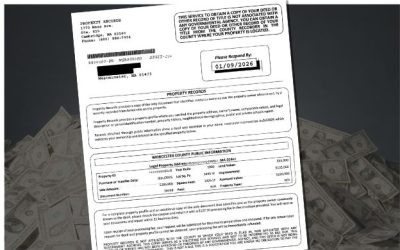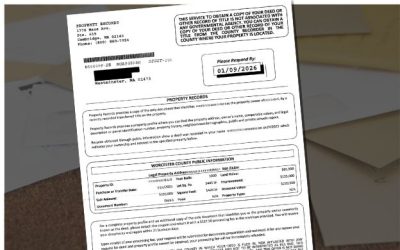Is Your Transaction a Red Flag?
What Triggers Extra Federal Scrutiny in 2025 Real EstateIn the changing world of real-estate compliance, you don’t have to do anything intentionally wrong to trigger extra federal scrutiny. Many everyday transaction features are becoming “red flags” in the eyes of the Financial Crimes Enforcement Network (FinCEN) and closing professionals adapting to the new rule. If you’re involved in a sale or purchase, one or more of these triggers may apply—and if ignored, you risk delay, cost, or worse.
Common red-flags to watch
Entity or trust as buyer
If the buyer is an LLC, corporation, partnership or trust instead of an individual, the transfer may be reportable. The rule zeroes in on “transferee entity or trust” status.
Non-financed (all-cash or private financing) deal
If there’s no traditional bank mortgage subject to AML/SAR rules, the transaction qualifies as non-financed—one of the key criteria.
Vacant land or mixed-use residential property
The rule covers residential real property broadly: single-family homes, townhouses, condos, co-ops, and vacant land intended for residential use.
Seller or buyer using shell or layered ownership structures
If the chain of ownership is opaque, or if beneficial owners hold through multiple entities/trusts, that complexity itself is a risk.
Large deposits, private loans, off-book financing
Transactions where funds deposit sources are non-traditional, or where private lenders are used instead of banks with AML programs, attract attention
Jurisdictions under existing GTOs
Some metros already have heightened scrutiny under GTOs (Geographic Targeting Orders) requiring buyer identity disclosures for high risk purchases.
Why these trigger-features matter
Each red-flag correlates with a higher risk of illicit finance entering the market via real-estate. FinCEN estimates that non-financed transfers to legal entities/trusts are “higher risk for money laundering” because they avoid traditional lender oversight.
Because of this, transactions featuring one or more of the triggers above often require additional documentation, verification of beneficial owners (names, DOB, addresses, SSNs or TINs) and may even prompt reporting to federal authorities.
What you should do if your transaction has red-flags
- Disclose early. If any of the features above apply, inform your closing team and plan for extra time and documentation.
- Gather full ownership info. Make sure you know exactly who owns or controls every entity/trust involved, and that their details are documented.
- Check financing structure. If you’re bypassing a typical mortgage, understand how the funds are sourced, and have proof ready.
- Choose knowledgeable professionals. Title companies, attorneys and escrow agents with compliance awareness can guide you through the process more smoothly.
- Monitor closings in high-scrutiny areas. If you’re in a metro under a GTO (e.g., certain CA, TX, FL counties), expect closer attention.
Key takeaway
A “quiet” sale or purchase may not feel complicated—but if it has any of the trigger-features above, it could become one of the most complicated closings you face. By spotting red-flags early and aligning with experienced professionals, you can keep your deal on track and avoid surprise compliance holds.
Looking Ahead
Staying Ready in an Uncertain Market
Whether you’re buying, selling, or refinancing, an experienced attorney helps safeguard your transaction. From rate-lock coordination to closing documentation, The Law Office of David R. Rocheford, Jr., P.C. ensures your real estate deal stays on track — no matter what direction the market moves next.
SOURCES
- FinCEN fact sheet on rule and red-flag criteria. https://www.fincen.gov/system/files/shared/RREFactSheet.pdf
- Title/escrow guidance on non-financed transfers. https://www.oldrepublictitle.com/title-agents/fincen-reporting
- Article on how closing professionals must spot beneficial owners. https://www.buchalter.com/insights/new-fincen-rule-on-transparency-reporting-in-residential-real-estate-closings
- GTO renewal details highlighting jurisdictions of focus. https://www.fincen.gov/news/news-releases/fincen-renews-residential-real-estate-geographic-targeting-orders-0
Providing title, escrow, closing and settlement services to clients throughout Massachusetts and New Hampshire
Recent News
What Real Estate Agents Need to Know About FinCEN’s New Residential Real Estate Reporting Rule (Effective March 1, 2026)
SUMMARY: Starting March 1, 2026, FinCEN’s Residential Real Estate Rule requires a Real Estate Report for certain non-financed residential transfers where the buyer is an entity or trust (common “cash/opaque ownership” scenarios). Real estate agents do not file the...
Why New Homeowners Get Targeted After Closing
For many buyers, one of the most surprising parts of homeownership happens after the closing is complete: the sudden increase in mail related to their property. This isn’t accidental—and it isn’t unique to any one company or offer. It’s the predictable result of how...
New Homeowners Beware: “Recorded Deed” Letters That Aren’t What They Seem
Buying your first home is exciting—and it often comes with a mountain of paperwork. Unfortunately, it can also make you a target for misleading solicitations that appear official and urgent, but offer nothing you actually need.One of the most common examples we see...








